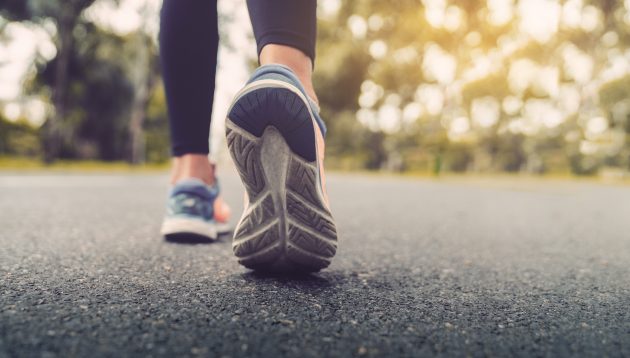Walking 'with purpose' is better for your health than a casual stroll, says study
Research has highlighted that walking with a purpose is healthier.

With both COVID-19 precautions and the current heatwave, walking has become a preferred option for commuters. And now, a study has revealed that it is actually better to walk to work than it is to walk for leisure.
New research suggests that walking with a purpose, (to run an errand, to work, or to get to an appointment, for example) is much more effective as it not only makes people walk faster but makes them consider themselves to be healthier overall.
The study, which was published in the Journal of Transport and Health earlier this month, found that those who walked to places like work, the supermarket or any appointments from their homes and made a regular habit of it, reported better health than people who mostly only walked for leisure.
Explaining the findings, Gulsah Akar, an associate professor of city and regional planning in The Ohio State University Knowlton School of Architecture, said, "We found that walking for utilitarian purposes significantly improves your health, and that those types of walking trips are easier to bring into your daily routine."
MORE:Walking 10,000 steps daily is easy if you do these 3 simple things
"So, basically, both as city planners and as people, we should try to take the advantage of this as much as possible," Akar added. And what better time to swap out public transport for walking?
It may take longer but the health benefits will be worth it. Plus it'll ensure you regularly get your 10,000 steps in , not to mention the extra cash it'll save you!
Sign up to our free daily email for the latest royal and entertainment news, interesting opinion, expert advice on styling and beauty trends, and no-nonsense guides to the health and wellness questions you want answered.
For the study, researchers used data from the 2017 National Household Travel Survey, a U.S. dataset collected from April 2016 to May 2017. They carefully studied self-reported health assessments from 125,885 adults between the ages of 18 and 64. Each adult was asked to report the number of minutes they spend on walking for different purposes.

They were then asked to rank how healthy they thought they were on a scale of 1 to 5. In the end, the overall results showed thatwalking for any duration, for any purpose, increased how healthy a person felt.
However, Akar and the research team also found that an additional 10 minutes of walking per trip from someone's home for work-based trips (for example, from a person's house to the bus stop 10 minutes away) increased that person's odds of having a higher health score by six per cent compared with people who walk for other reasons.
"I was thinking the differences would not be that significant, that walking is walking, and all forms of walking are helpful," Akar admitted. "And that is true, but walking for some purposes has significantly greater effect on our health than others."
Right, we're off to get some new walking boots!
So will you be walking to work tomorrow?